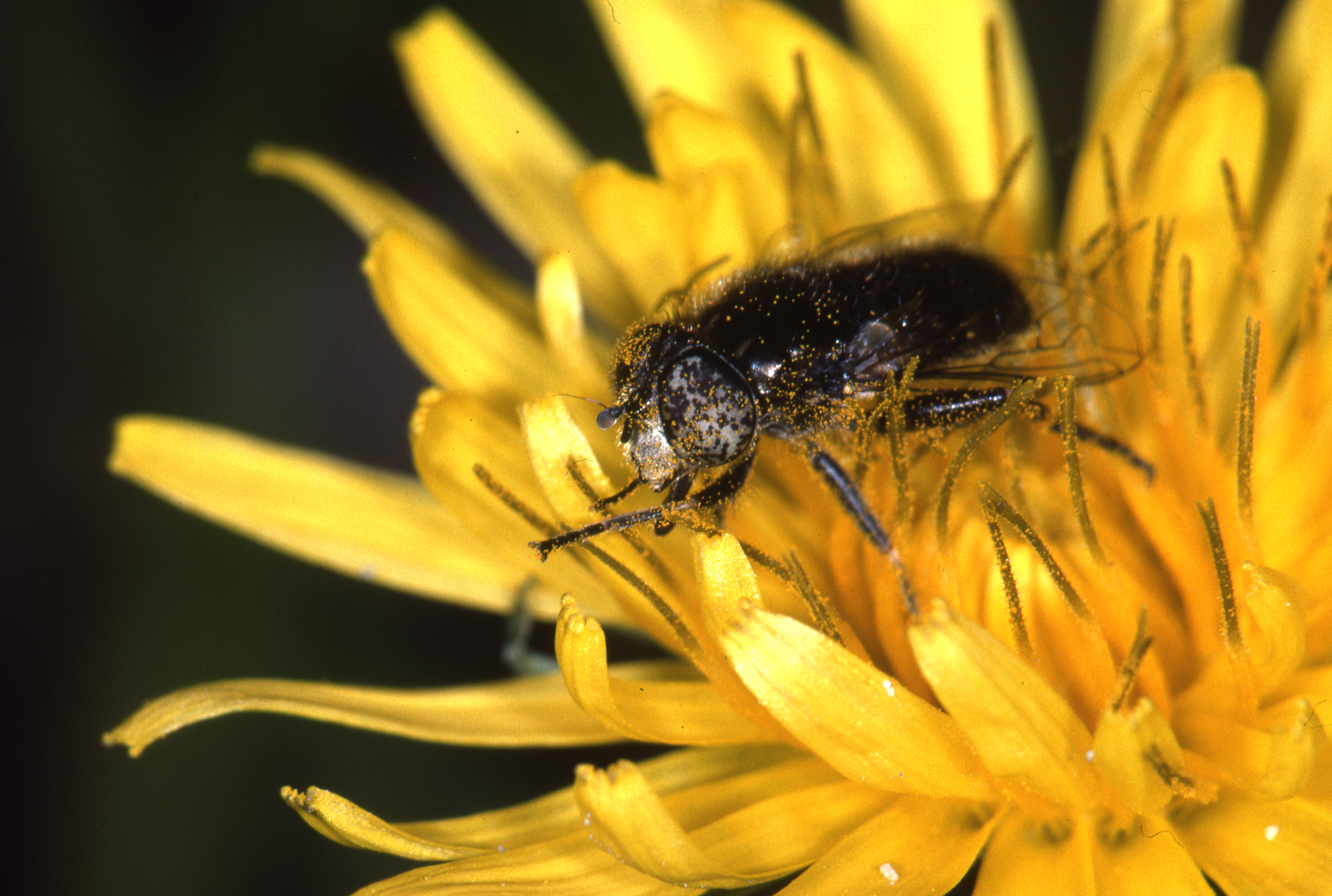Collection of biodiversity data on European hoverfly species

©Ximo Mengual
A female of Eristalinus aeneus (Scopoli, 1763) covered with pollen. The larvae of this hoverfly are saprophages in liquid and semi-liquid media rich in organic material.
Hoverflies are often confused with bees, which they closely resemble in appearance. And like them, they are considered one of the world’s most important groups of pollinators.
In the EU-funded Taxo-Fly project led by the Finnish Natural History Museum Luomus of the University of Helsinki, taxonomic and ecological data on hoverfly species occurring in Europe are now to be collected and bundled on a web platform. As a hoverfly specialist, Dr. Ximo Mengual, section leader Diptera at the Leibniz Institute for the Analysis of Biodiversity Change Museum Koenig (LIB Museum Koenig) in Bonn, is part of the core team of the project, which will run for three years.
Comprehensive data on the classification, identification characteristics, ecology and distribution of the more than 900 hoverfly species found in Europe can help to preserve the natural pollinators in their habitats. This also helps to protect the existence of flowering plants. Experts from across Europe, led by the Finnish Natural History Museum Luomus of the University of Helsinki, are making comprehensive biodiversity data available on a website operated by the European Commission. “LIB Museum Koenig is contributing its taxonomic tools and expertise on hoverflies to the Taxo-Fly project,” Mengual explains.
Full article available at Press.


